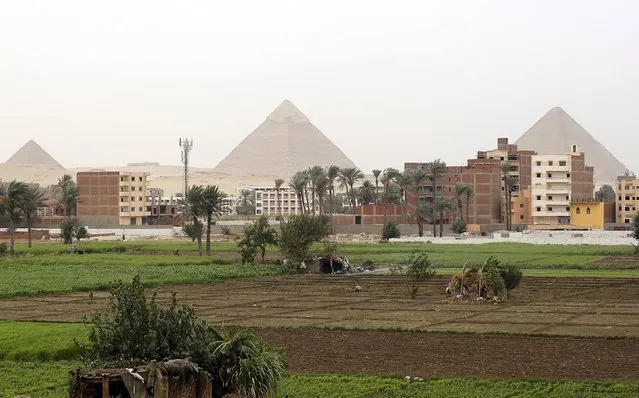
Farmers work at a rice field near the Great Giza pyramids on the outskirts of Cairo, Egypt in this November 2, 2014 file photo. (Photo by Amr Abdallah Dalsh/Reuters)
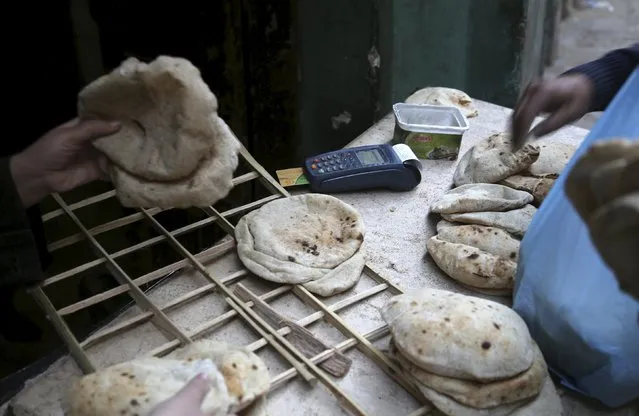
A smart card unit used by customers to pay for subsidised bread is seen at a bakery in Cairo, Egypt, February 9, 2016. (Photo by Asmaa Waguih/Reuters)
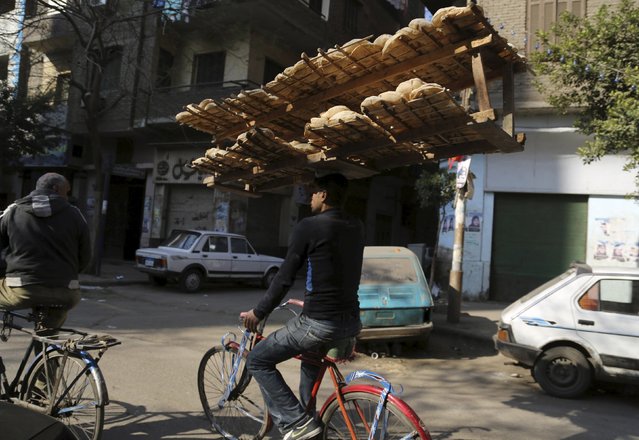
A bakery worker rides a bicycle as he carries fresh bread on his head in Cairo, Egypt, February 9, 2016. (Photo by Asmaa Waguih/Reuters)
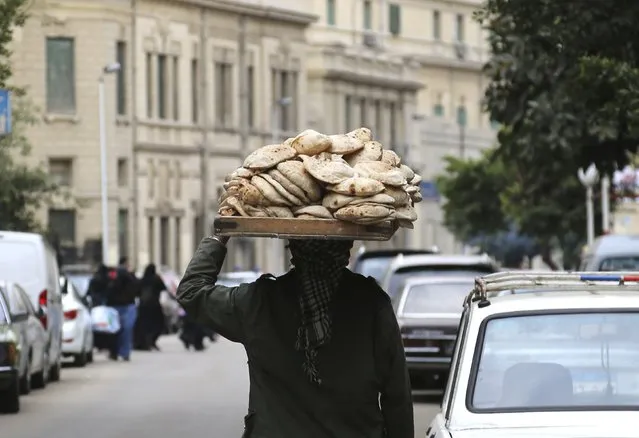
A man carries freshly baked bread on his head along a street in Cairo, Egypt, February 8, 2016. (Photo by Asmaa Waguih/Reuters)
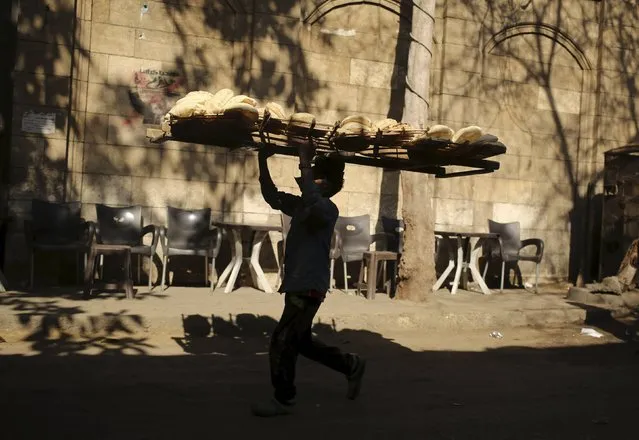
A bakery worker carries freshly baked bread on his head to deliver it to shops in Cairo, Egypt, February 14, 2016. (Photo by Asmaa Waguih/Reuters)
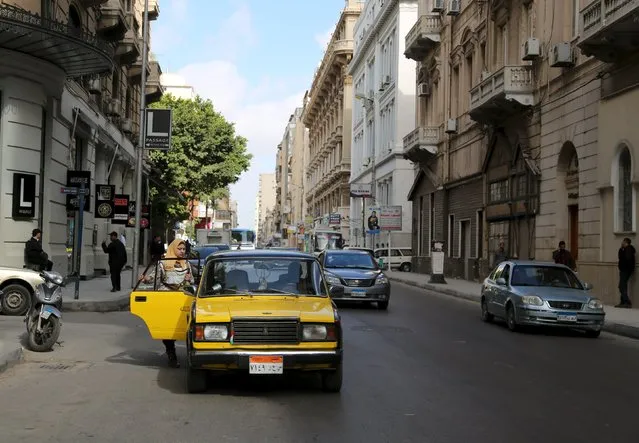
A woman gets into a yellow and black cab in front of L-Passage food hall on Fouad street in Alexandria, Egypt, February 23, 2016. In Egypt's Alexandria, Fouad Street reflects the city's rich history and is known for its elegant villas and antique shops. Today the Mediterranean coastal city, once a melting pot of nationalities and faith groups, is overcrowded and dilapidated, like many of Egypt's urban centres. Fouad, among the city's oldest streets and once home to a Greek poet and a British novelist, today features modern retail brands and is an area still popular with antique fans and art lovers. (Photo by Asmaa Waguih/Reuters)
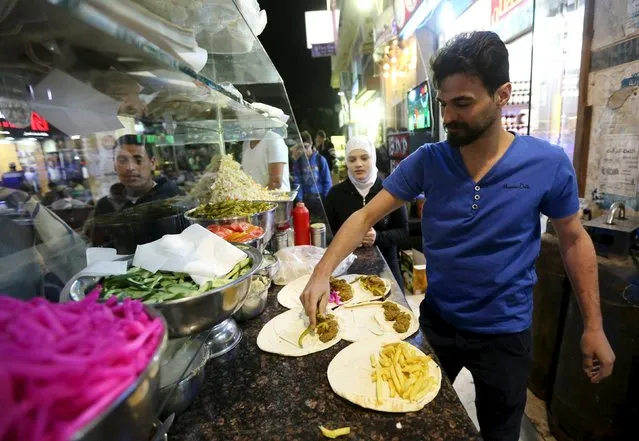
Syrians work at a Syrian restaurant in an area called 6 October City in Giza, Egypt, March 19, 2016. Attracting visitors from across the country, a market mostly run by Syrians fleeing the war has recently gained popularity in Giza. The area, in 6 October City, is known as “Little Damascus” due to its large Syrian population, as well as eateries and shops selling traditional Syrian delicacies. (Photo by Mohamed Abd El Ghany/Reuters)
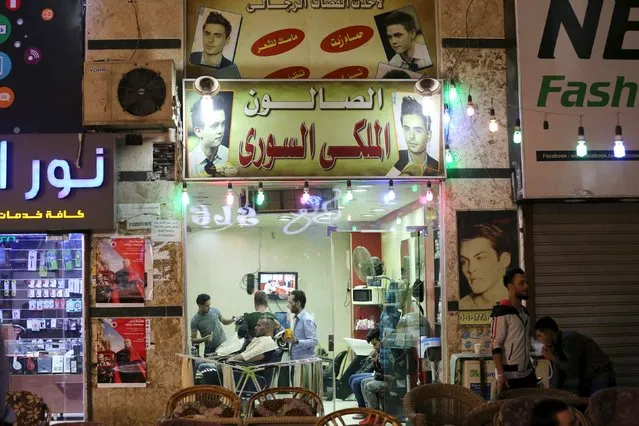
Syrians work at a barber in an area called 6 October City in Giza, Egypt, March 19, 2016. Attracting visitors from across the country, a market mostly run by Syrians fleeing the war has recently gained popularity in Giza. (Photo by Mohamed Abd El Ghany/Reuters)
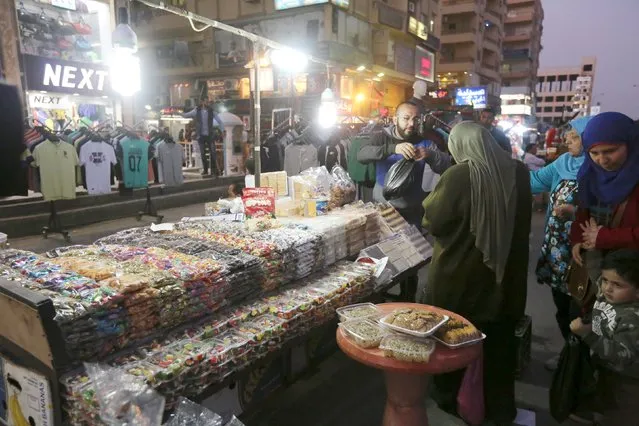
A Syrian street vendor sells sweets in an area called 6 October City in Giza, Egypt, March 19, 2016. Attracting visitors from across the country, a market mostly run by Syrians fleeing the war has recently gained popularity in Giza. (Photo by Mohamed Abd El Ghany/Reuters)
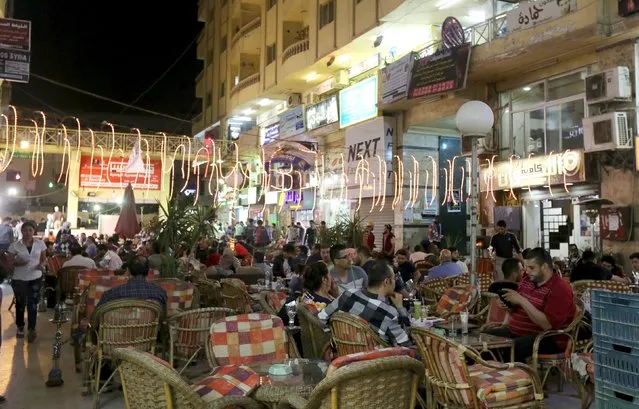
Syrians work at a coffee shop in an area called 6 October City in Giza, Egypt, March 19, 2016. (Photo by Mohamed Abd El Ghany/Reuters)
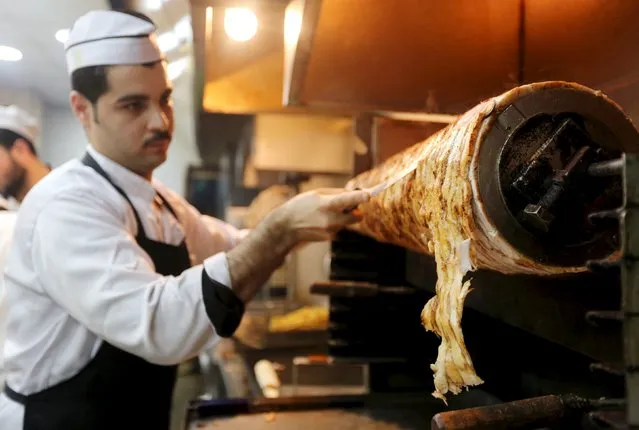
Syrians work at a Syrian restaurant in an area called 6 October City in Giza, Egypt, March 19, 2016. (Photo by Mohamed Abd El Ghany/Reuters)
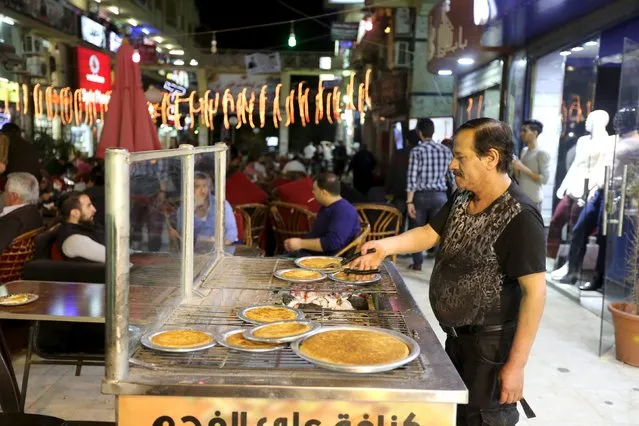
Syrians work at an eastern sweets restaurant in an area called 6 October City in Giza, Egypt, March 19, 2016. (Photo by Mohamed Abd El Ghany/Reuters)
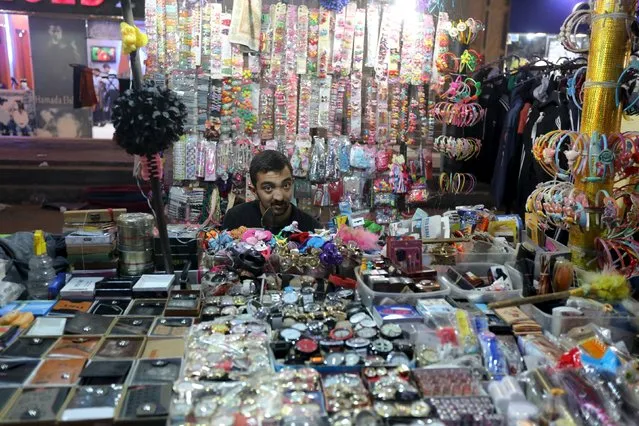
A Syrian street vendor looks from his shop in an area called 6 October City in Giza, Egypt, March 19, 2016. (Photo by Mohamed Abd El Ghany/Reuters)
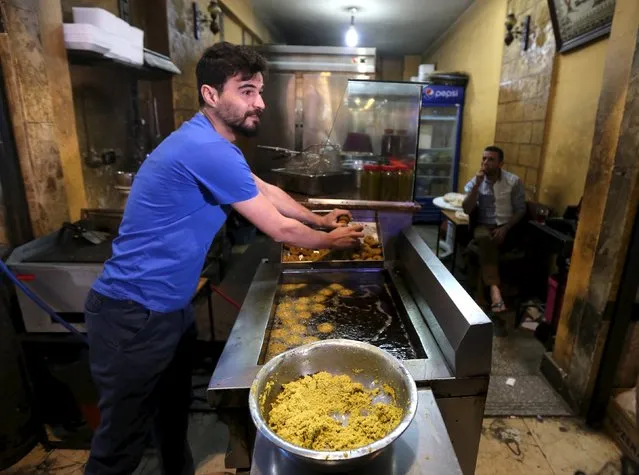
Syrians work at a Syrian restaurant in an area called 6 October City in Giza, Egypt, March 19, 2016. (Photo by Mohamed Abd El Ghany/Reuters)
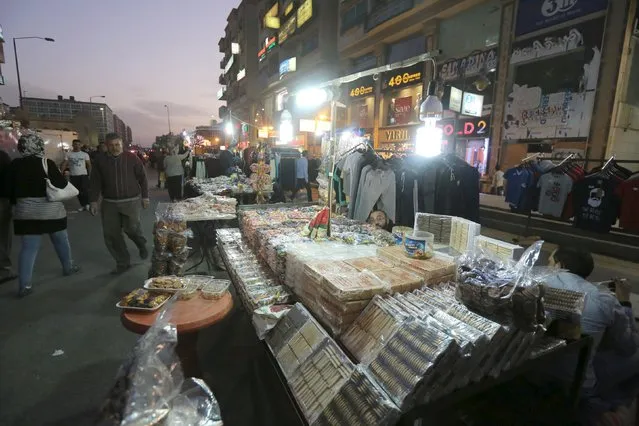
Syrian street vendor sells sweets in an area called 6 October City in Giza, Egypt, March 19, 2016. (Photo by Mohamed Abd El Ghany/Reuters)
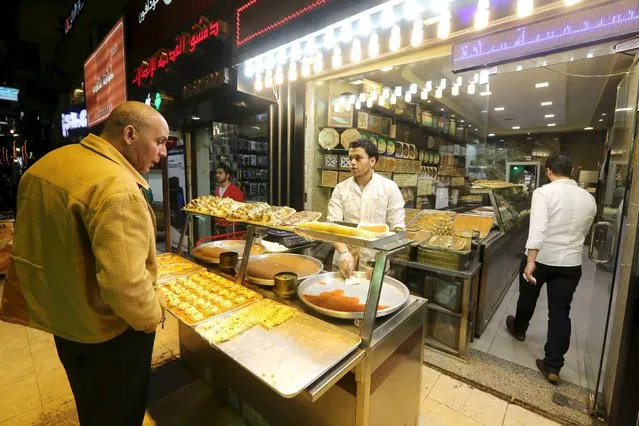
Syrians work at an eastern sweets restaurant in an area called 6 October City in Giza, Egypt, March 19, 2016. (Photo by Mohamed Abd El Ghany/Reuters)
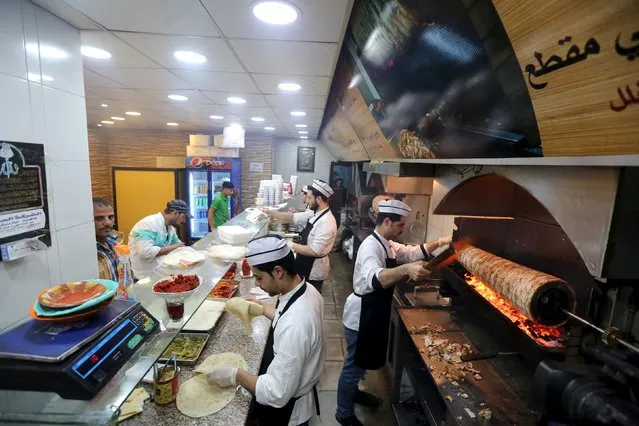
Syrians work at a Syrian restaurant in an area called 6 October City in Giza, Egypt, March 19, 2016. (Photo by Mohamed Abd El Ghany/Reuters)
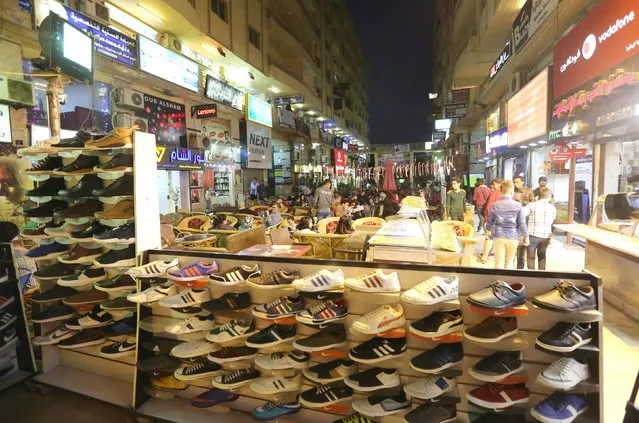
A general view of Syrians working in an area called 6 October City in Giza, Egypt, March 19, 2016. (Photo by Mohamed Abd El Ghany/Reuters)
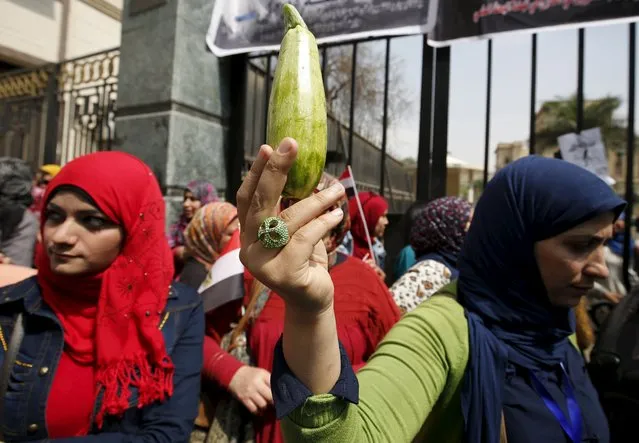
A woman gestures during a protest, to demand the government to offer unemployed graduates jobs, in front of the parliament headquarters in Cairo, March 27, 2016, where Egyptian Prime Minister Sherif Ismail was speaking. (Photo by Amr Abdallah Dalsh/Reuters)
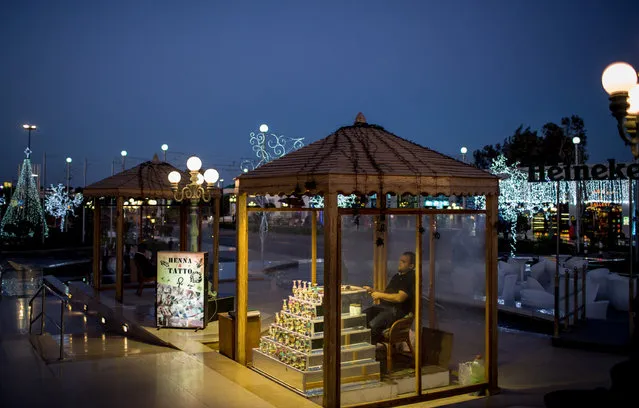
A souvenir vendor waits for customers on March 31, 2016 in Sharm El Sheikh, Egypt. Prior to the Arab Spring in 2011 some 15million tourists would visit Egypt each year. The resort town of Sharm El Sheikh was built around tourism however tourist numbers have plummeted after recent terrorist attacks with flights from major UK carriers being suspended and foreign offices around the world warning citizens of the 'High threat from terrorism' Sharm El Sheikh is almost a ghost town, with many resorts being abandoned and business forced to close. (Photo by Chris McGrath/Getty Images)
07 Apr 2016 14:37:00,
post received
0 comments
